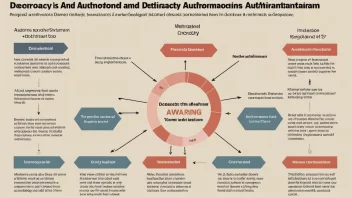Public policy plays a crucial role in shaping healthcare systems across the globe. It encompasses the decisions and actions taken by government bodies that directly affect the delivery, accessibility, and quality of healthcare services. Understanding how public policy impacts healthcare can provide insights into the strengths and weaknesses of different systems, as well as inform future reforms aimed at improving health outcomes for populations. One of the most significant aspects of public policy in healthcare is the establishment of regulations and standards that govern the industry. This includes the creation of laws that dictate how healthcare providers must operate, what services they must offer, and how they are compensated for their work. For instance, policies that require hospitals to provide emergency care regardless of a patient's ability to pay can greatly affect access to necessary services, especially for underserved populations. Furthermore, public policy also influences funding for healthcare programs. Government budgets determine the resources allocated to various health initiatives, such as public health campaigns, preventive care, and medical research. A well-funded healthcare system is more likely to provide comprehensive services, while budget cuts can lead to diminished care quality and access. For instance, during economic downturns, healthcare funding may be one of the first areas to face cuts, potentially exacerbating existing health disparities. Additionally, public policy can shape the healthcare workforce. Policies related to education, training, and licensure can affect the availability of healthcare professionals, particularly in rural or underserved areas. For example, initiatives aimed at increasing the number of primary care physicians can directly impact patient access to care. Similarly, policies that support telehealth expansion can help bridge gaps in care for those in remote locations. Beyond regulations and funding, public policy also plays a pivotal role in addressing social determinants of health, such as housing, education, and income inequality. Policies that target these factors can lead to significant improvements in population health. For example, initiatives aimed at increasing access to quality education and stable housing can lead to better health outcomes over time. On the other hand, policies that fail to consider these social determinants may struggle to address the root causes of health issues. Public health crises, such as the COVID-19 pandemic, have illuminated the vital link between policy and healthcare systems. Governments worldwide have had to respond quickly to protect public health, implementing policies related to testing, vaccination, and resource allocation. The effectiveness of these policies has highlighted the importance of evidence-based decision-making and the need for flexible governance structures that can adapt to emerging health threats. In conclusion, public policy has a profound impact on healthcare systems, influencing everything from access to services and funding to the healthcare workforce and social determinants of health. As societies continue to face complex health challenges, understanding the interplay between policy and healthcare will be essential for designing effective interventions that promote health equity and improve outcomes for all citizens.
Exploring the Role of Public Policy in Healthcare
Public policy significantly shapes healthcare systems by influencing accessibility, quality, and delivery of services.






